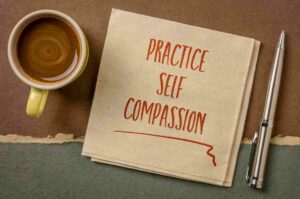If you are one of the millions of people who suffer from Relationship OCD (ROCD), then you know just how debilitating it can be. This type of OCD is characterized by obsessive thoughts and doubts about your relationship. The good news is that there are ways to overcome it! In this blog post, we will discuss 10 tips from a relationship OCD therapist that can help you manage your condition.
Contents
Who Are Relationship OCD Therapists?
 Relationship OCD (ROCD) therapists are mental health professionals who specialize in treating individuals with relationship-related Obsessive-Compulsive Disorder. ROCD is a subset of Obsessive Compulsive Disorder that focuses on thoughts and behaviors related to relationships, such as doubts about the worthiness of a partner or an inability to accept the natural ups and downs of a relationship.
Relationship OCD (ROCD) therapists are mental health professionals who specialize in treating individuals with relationship-related Obsessive-Compulsive Disorder. ROCD is a subset of Obsessive Compulsive Disorder that focuses on thoughts and behaviors related to relationships, such as doubts about the worthiness of a partner or an inability to accept the natural ups and downs of a relationship.
ROCD therapists understand the unique challenges that relationships pose for those with OCD. And are trained to provide evidence-based treatments such as cognitive behavior therapy (CBT) to help manage symptoms. They also have experience in helping couples work through their issues, enabling them to improve communication and strengthen their bond.
With the help of a ROCD therapist, individuals with relationship-related OCD can learn to challenge their intrusive thoughts and develop healthier ways of relating to their partners. Through therapy, they can gain insight into the roots of their distress and practice accepting uncertainty in a loving relationship.
So, do not suffer in silence. If you or your partner have ROCD, reach out to a qualified relationship OCD therapist today and start working towards a more fulfilling life together.
Top 10 Tips From A Relationship OCD Therapist
Relationship OCD can be an isolating and difficult condition to manage. However, with the help of a professional ROCD therapist, individuals can learn how to better cope with their symptoms and find lasting peace. Here are 10 tips from relationship OCD therapists on managing your condition:
Understand your thoughts
One of the foremost tips from a Relationship OCD therapist is to understand that your thoughts are not always accurate. It is important to recognize when you’re having intrusive thoughts and be aware of where they might be coming from. For example, you may be having thoughts related to self-doubt or fear of abandonment. By understanding your thoughts, you can better manage them and challenge the irrational ones.
Challenge your beliefs
It is important to recognize that our beliefs are not always accurate. When it comes to relationships, many people hold onto certain assumptions that may be false. For example, you may believe that your partner is never satisfied with you or that they don’t love you enough. Challenge these beliefs and try to look at the situation objectively.
Dig deeper
Instead of immediately jumping to conclusions, take the time to explore why you’re feeling the way you do. This can help you understand the root cause of your fears and give you insight into why certain thoughts are coming up for you. For example, if you find yourself feeling insecure in your relationship, take a moment to reflect on why and what may be causing it.
Identify triggers
 It’s important to identify the things that trigger your ROCD symptoms. This could include certain people, situations, or conversations. Once you identify these triggers, you can begin to work on managing them better. In fact, triggers can be helpful in understanding what may be causing your distress and can give you insight into how to better cope with it.
It’s important to identify the things that trigger your ROCD symptoms. This could include certain people, situations, or conversations. Once you identify these triggers, you can begin to work on managing them better. In fact, triggers can be helpful in understanding what may be causing your distress and can give you insight into how to better cope with it.
Set boundaries
Setting boundaries can help protect your mental health and well-being. This could include not engaging in conversations that trigger you, avoiding certain people or situations, or taking time for yourself when needed. By setting these boundaries, you can create a safe space for yourself and take back control of your life. Because most problems in relationships are related to boundaries, this is a key component of managing ROCD.
Focus on positive thoughts
It’s important to focus on the positive in order to prevent yourself from getting stuck in spiraling negative thoughts. This can help you create more balanced perspectives and challenge any irrational beliefs that may be contributing to your distress. It also helps to write down positive affirmations or take time for self-care that can help boost your mood.
Stay connected
It is important to stay connected with other family and friends who can help you manage your ROCD. This includes not only those who may be able to provide emotional support but also professionals such as a ROCD therapist who can provide guidance and help you build better-coping skills. Because if you isolate yourself, it can make your symptoms worse.
Learn to accept uncertainty
No relationship is ever perfect, and this can be especially true for those with ROCD. It’s important to learn how to accept that there will always be some degree of uncertainty in a relationship and that this is OK. This can help you let go of perfectionism, which often fuels ROCD-related issues. A relationship OCD therapist always stresses the importance of learning to accept that relationships are never perfect and that this is natural.
Practice being mindful
Focus on the present moment and be aware of your thoughts without judgment. This is more important than ever for those with ROCD. Mindfulness can help you learn to observe your thoughts instead of getting caught up in them and it can help you focus on the present instead of worrying about the future.
Practice self-compassion
 Finally, if you are struggling with ROCD, it is important to practice self-compassion. This means being kind and understanding to yourself when you are feeling overwhelmed or anxious. Remind yourself that you are doing the best you can and don’t beat yourself up for feeling this way. Self-compassion is a powerful tool for managing uncomfortable emotions and can be particularly helpful for those with ROCD.
Finally, if you are struggling with ROCD, it is important to practice self-compassion. This means being kind and understanding to yourself when you are feeling overwhelmed or anxious. Remind yourself that you are doing the best you can and don’t beat yourself up for feeling this way. Self-compassion is a powerful tool for managing uncomfortable emotions and can be particularly helpful for those with ROCD.
By understanding these tips from a relationship OCD therapist, it will be much easier to take control of ROCD and find peace in your relationships. You can also seek out professional help or look for online resources such as support groups or therapy to help you manage your symptoms.
Remember that no matter how hard it may be, there is hope for managing ROCD and returning to a place of healthy relationships. With the right support, you can learn to cope with ROCD and find peace again.
What Techniques Do They Use?
The techniques used by relationship OCD therapists may vary depending on the individual and their needs. However, cognitive behavior therapy (CBT) is often a cornerstone of treatment for ROCD. Through this approach, individuals can learn to challenge distorted thought patterns and develop more helpful ways of thinking about their relationships.
Some other techniques that may be used in treating relationship OCD include:
- Exposure and response prevention (ERP): ERP is a type of therapy that involves gradually exposing oneself to thoughts, images, or situations that trigger anxiety around relationships. With practice, individuals can learn how to resist the urge to succumb to their OCD behaviors and develop healthier responses.
- Mindfulness practices: Mindfulness is a form of meditation that can help individuals become more aware of their thoughts and emotions in the present moment. This can be a useful tool for those with ROCD. As it helps them become better attuned to their relationship struggles and develop more effective ways of responding.
- Acceptance and commitment therapy (ACT): ACT is another type of therapy that teaches individuals how to accept uncomfortable feelings and thoughts surrounding relationships, rather than trying to fight them. This approach can help individuals come to terms with the uncertainty of relationships, allowing them to grow more secure in their attachments.
By incorporating these techniques into therapy, relationship OCD therapists can help individuals gain insight into their struggles. And develop healthier ways of relating to their partners. This in turn can lead to more meaningful and fulfilling relationships.
With the help of these approaches, individuals can gain insight into their own strengths, weaknesses, and experiences in a relationship setting. This can lead to greater understanding and acceptance of themselves and their relationships.
Conclusion
In conclusion, a relationship OCD therapist is someone who is specially trained to help those struggling with ROCD. They use evidence-based approaches such as cognitive behavior therapy, exposure and response prevention, mindfulness practices, and acceptance and commitment therapy to help individuals manage their intrusive thoughts. And develop healthier ways of relating to their partners.
With the help of these therapists, those with ROCD can gain insight into their struggles and learn to accept the uncertainty that comes with relationships. This can lead to more meaningful and satisfying connections with the people they love.
Don’t hesitate to contact us immediately for more information! OCD is a mental health disorder characterized by obsessions and compulsions. Contact us today if you have any queries regarding OCD treatment, or ERP therapy the experienced therapists at OCDMantra can help: Book a trial OCD therapy session


